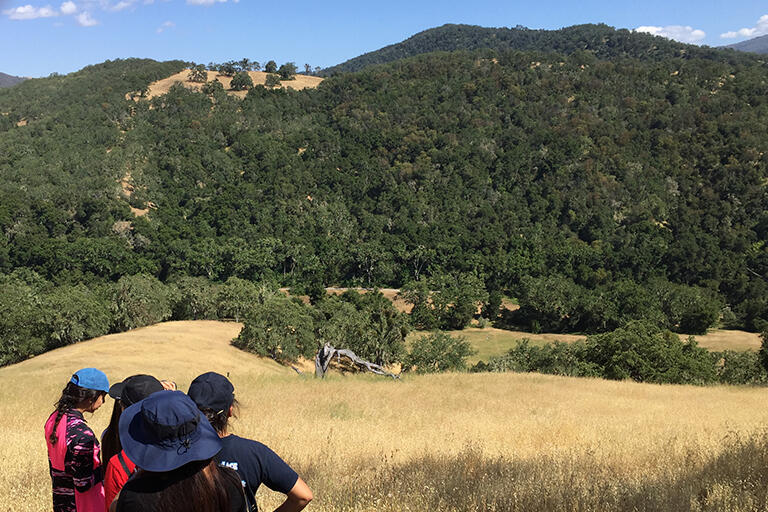
The BSP Hastings Field Trip
Our multi-day trip explores the importance of understanding organisms in their natural environment and humans' role in shaping that environment. Students will discover basic field research practices such as:
-
identifying native CA plants
-
trapping small mammals and herpetofauna
-
locating and observing bird species
The trip will show students some of the types of research that happen beyond the labs on campus.
In addition, it's an opportunity to meet other BSP members, graduate students, and faculty who are doing this type of research. Participants will learn about their paths and how they have worked to overcome challenges along the way.
It's a chance to have a lot of fun and spend time with others who share a passion for biology and the natural world.
Trip Eligibility
- Only open to currently enrolled BSP members with a UC Berkeley student ID.
- Ability to attend a mandatory orientation before the trip.
- Commit to a multi-day overnight trip.
Related Information
For students interested in learning how to look at the natural world with a scientific mind, UC Berkeley offers a variety of exciting classes and seminars. Make an appointment with a BSP advisor to learn more!
The Hastings Natural History Reservation belongs to the UC Natural Reserve System, a collection of properties managed and maintained by the University of California. They represent most of the state's major habitat types. Learn more about Hastings and the network of protected natural areas here:

BSP members explore the natural beauty of the Hastings Natural History Reserve during the 2019 trip.

BSP member Nallely Montes (Class of 2016, Ethnic Studies) gets hands-on experience learning proper live mammal trapping and handling for research during the 2019 trip. Montes practices holding a Heermann's Kangaroo Rat (Dipodomys heermanni) found only in California. It's a nocturnal, solitary species of rodent that lives and nests in burrows. They are an important prey item for snakes, owls, badgers, foxes, coyotes, and other predatory animals.

Hastings is home to 70 years of ecological research and has many ongoing projects, including botany, zoology, geology, soils, and physics. Most of the research is directly based on long-term studies or plots with data made available over long time intervals. Here, the participants of the 2018 trip take a break for a group photo under a large oak tree next to the Fanny Arnold Classroom.

